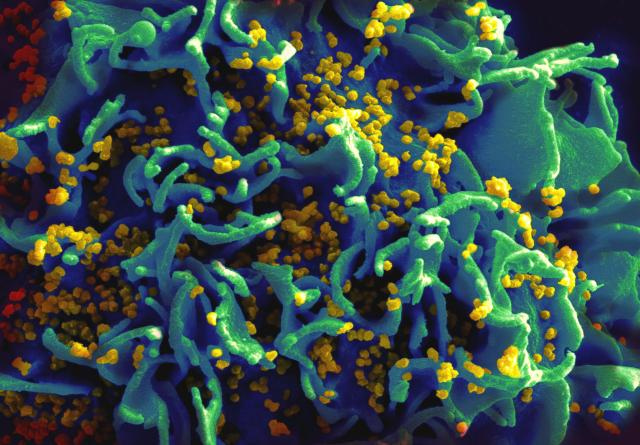
The HIV drugs in Gilead Sciences’ portfolio help patients manage the disease, but the company has also been trying to develop treatments that could cure it. Gilead is placing a bet on yet another potential cure through a partnership with Gritstone Oncology.
The alliance, announced Monday, is the third in HIV that Gilead has struck in the past three years. In total, the three partnerships give Foster City, California-based Gilead at least five curative HIV therapies in development.
Gritstone’s proprietary platform technology, EDGE, predicts antigens on the surface of cells that can be recognized by the immune system. Based on that insight, the company develops immunotherapies that spark a patient’s immune system to destroy disease-causing cells that display those antigens. Gritstone has used its technology to develop cancer immunotherapies, two of which are now in clinical testing. The company’s technology can also address infectious diseases.
Under the deal announced Monday, Gilead and Gritstone will develop an HIV-specific therapeutic vaccine using Gritstone’s proprietary prime-boost vaccine platform. That vaccine candidate will target HIV antigens developed by Gilead.
Gilead will pay its partner $60 million — $30 million cash up front and a $30 million equity investment at a premium. Phase 1 testing of the therapeutic vaccine will be done by Gilead. The deal also gives the larger company an exclusive option to license the drug and continue its development. If Gilead exercises that option, milestone payments could bring Emeryville, California-based Gritstone as much as $725 million, plus royalties from sales.
HIV drugs are a mainstay of Gilead’s drug lineup. Of the $22.1 billion in 2019 sales, the company’s HIV portfolio accounted for $16.4 billion. The top overall seller, Biktarvy, is the company’s top-selling HIV drug, generating $4.7 billion in sales in 2019. Approved in 2018, the drug is a once-daily pill that combines three Gilead antiretrovirals. Partnerships give the company access to new approaches that could further expand its HIV portfolio.

A Deep-dive Into Specialty Pharma
A specialty drug is a class of prescription medications used to treat complex, chronic or rare medical conditions. Although this classification was originally intended to define the treatment of rare, also termed “orphan” diseases, affecting fewer than 200,000 people in the US, more recently, specialty drugs have emerged as the cornerstone of treatment for chronic and complex diseases such as cancer, autoimmune conditions, diabetes, hepatitis C, and HIV/AIDS.
Since 2018, Gilead has been working with Hookipa Pharma on therapies for both HIV and hepatitis B virus (HBV). The New York-based company’s immunotherapies employ engineered arenaviruses designed to reprogram the immune system to respond to specific disease targets. The therapeutic vaccines are intended to be functional cures, meaning that HIV and HBV won’t be eradicated, but they will be controlled in such a way that they do not cause illness.
Hookipa received a $10 million upfront payment from Gilead and stands to earn up to $280 million in developmental milestone payments. If the partners are able to bring therapeutic vaccines to the market, Hookipa could earn up to $100 million more in commercialization milestone payments.
In a program update a little more than a year ago, Hookipa said that both the HIV and HBV vaccines were advancing toward clinical testing. Shortly after that announcement, Gilead licensed a portfolio of broadly neutralizing antibodies from Rockefeller University. The deal included two antibodies in clinical testing. The antibodies were derived from HIV-infected people who have a strong immune response against the virus. Gilead said preclinical and clinical research shows that these antibodies can produce a prolonged immune response to HIV, offering a new approach to treatment and prevention, as well as a potential approach to developing a cure.
Gritstone said preclinical work on its HIV therapeutic vaccine was based on antigens derived from simian immunodeficiency virus, which is similar to HIV-1, one of the two main types of HIV. The company added that it performed additional experiments with Gilead yielding data that complemented the clinical data its technology has produced in cancer. The alliance between the two companies lends additional validation to the application of Gritstone’s technology to infectious diseases. Late last month, Gritstone announced that a second-generation COVID-19 vaccine candidate that it is developing is being readied for a Phase 1 study that will be supported by the National Institute of Allergy and Infectious Diseases.
Image by Flickr user NIAID












